
Bordeaux: The Wine Capital of the World
Bordeaux, located in the southwestern part of France, is a city that seamlessly blends rich history with modernity. Known as the Wine Capital of the World, Bordeaux is a paradise for wine lovers. The city is surrounded by world-famous vineyards that produce some of the finest wines. Whether you are a wine connoisseur or a casual enthusiast, the wine tours and tastings in Bordeaux are experiences you will not want to miss. The city's historic heart, known as the Port of the Moon, is a UNESCO World Heritage Site. Wander through its narrow streets and discover beautiful 18th-century architecture, grand squares, and historic monuments. The iconic Place de la Bourse and the reflecting pool, Le Miroir d'eau, are must-see landmarks. The Bordeaux Cathedral, with its stunning Gothic architecture, offers a glimpse into the city's rich past. Bordeaux is also a hub for art and culture. The city boasts numerous museums, including the Musée des Beaux-Arts, which houses an impressive collection of European art. The contemporary art scene is thriving too, with venues like the CAPC Museum of Contemporary Art. For those who enjoy shopping, Rue Sainte-Catherine is one of the longest pedestrian streets in Europe and is lined with a variety of shops, cafes, and restaurants. Food is another highlight of Bordeaux. The city's culinary scene is diverse, offering everything from traditional French cuisine to international flavors. Don't miss out on trying local specialties like canelés, small pastries flavored with rum and vanilla. The vibrant markets, such as Marché des Capucins, provide a great opportunity to sample fresh local produce. Whether you are strolling along the Garonne River, exploring historical sites, or indulging in gourmet experiences, Bordeaux offers a unique and unforgettable journey. The city's charm, combined with its cultural richness and world-class wines, makes it a top destination for travelers.
Local tips in Bordeaux
- Book wine tours in advance, especially during the high season.
- Use the Bordeaux City Pass for free access to museums and public transportation.
- Visit the Marché des Capucins early for the freshest produce and local delicacies.
- Consider renting a bike to explore the city's scenic routes and vineyards.
- Make sure to check out the Bordeaux Wine and Trade Museum for a deeper understanding of the region's wine heritage.
Neighbourhoods in Bordeaux
Bordeaux: The Wine Capital of the World
Bordeaux, located in the southwestern part of France, is a city that seamlessly blends rich history with modernity. Known as the Wine Capital of the World, Bordeaux is a paradise for wine lovers. The city is surrounded by world-famous vineyards that produce some of the finest wines. Whether you are a wine connoisseur or a casual enthusiast, the wine tours and tastings in Bordeaux are experiences you will not want to miss. The city's historic heart, known as the Port of the Moon, is a UNESCO World Heritage Site. Wander through its narrow streets and discover beautiful 18th-century architecture, grand squares, and historic monuments. The iconic Place de la Bourse and the reflecting pool, Le Miroir d'eau, are must-see landmarks. The Bordeaux Cathedral, with its stunning Gothic architecture, offers a glimpse into the city's rich past. Bordeaux is also a hub for art and culture. The city boasts numerous museums, including the Musée des Beaux-Arts, which houses an impressive collection of European art. The contemporary art scene is thriving too, with venues like the CAPC Museum of Contemporary Art. For those who enjoy shopping, Rue Sainte-Catherine is one of the longest pedestrian streets in Europe and is lined with a variety of shops, cafes, and restaurants. Food is another highlight of Bordeaux. The city's culinary scene is diverse, offering everything from traditional French cuisine to international flavors. Don't miss out on trying local specialties like canelés, small pastries flavored with rum and vanilla. The vibrant markets, such as Marché des Capucins, provide a great opportunity to sample fresh local produce. Whether you are strolling along the Garonne River, exploring historical sites, or indulging in gourmet experiences, Bordeaux offers a unique and unforgettable journey. The city's charm, combined with its cultural richness and world-class wines, makes it a top destination for travelers.
When is the best time to go to Bordeaux?
Iconic landmarks you can’t miss
La Cité du Vin
Explore the world of wine at Bordeaux's La Cité du Vin: immersive exhibits, panoramic views, and unforgettable tasting experiences await!
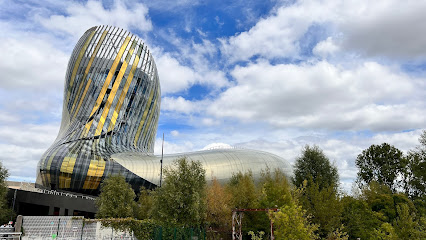
Place de la Bourse
Discover Place de la Bourse, Bordeaux's iconic square: a blend of neoclassical architecture, captivating reflections, and rich history.
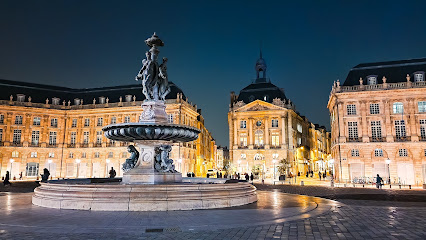
Miroir d'eau
Experience breathtaking reflections at the Miroir d'eau, the world's largest reflecting pool in the heart of Bordeaux.
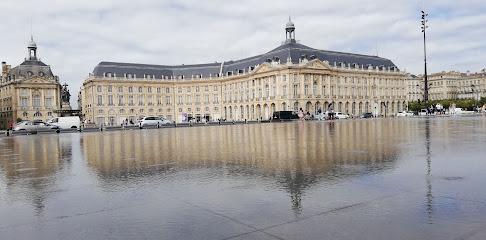
Cathédrale Saint-André de Bordeaux
Discover Bordeaux's Cathédrale Saint-André: a Gothic masterpiece with royal history, stunning architecture, and a vibrant cultural presence in the heart of the city.
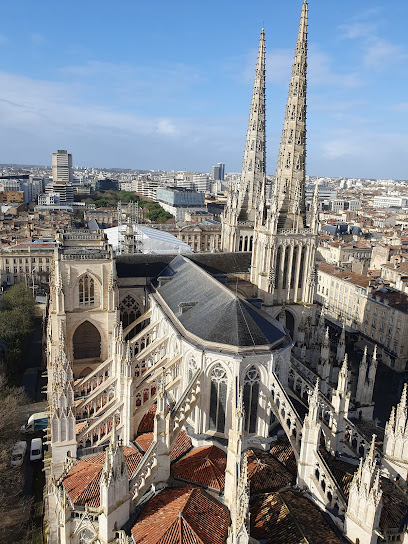
National Opera of Bordeaux
Experience the grandeur of the National Opera of Bordeaux, a neoclassical masterpiece and cultural gem in the heart of the city.
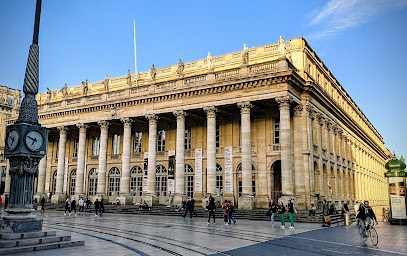
Monument aux Girondins
A majestic monument in Bordeaux's grand Place des Quinconces, honoring the Girondins and embodying the spirit of liberty and history.
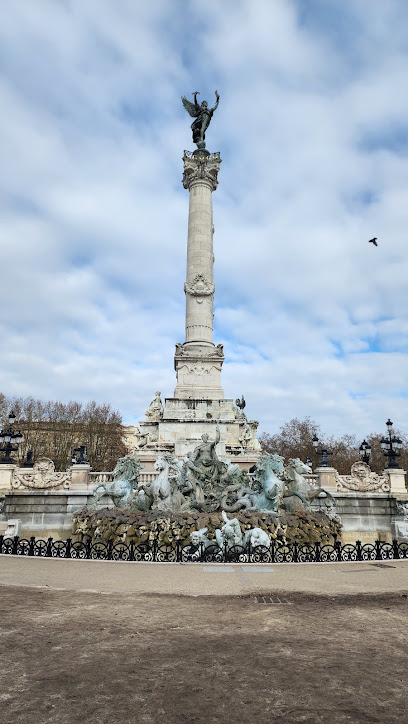
Base sous-marine
Explore Bordeaux's WWII submarine base, now a unique space for contemporary art and immersive digital exhibitions.
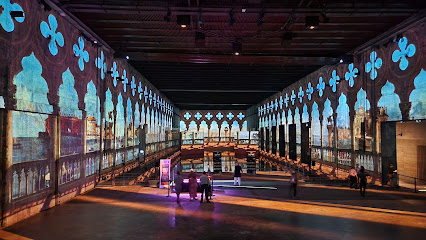
Porte de Bourgogne
Discover the Porte de Bourgogne in Bordeaux, a neoclassical gateway marking the city's rich history and architectural grandeur since the 18th century.
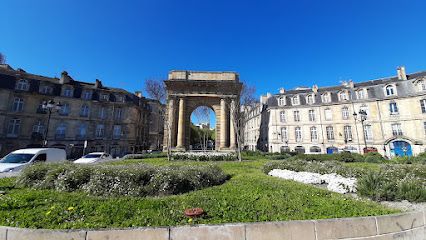
Grosse Cloche
Discover Bordeaux's Grosse Cloche, a historic bell tower and iconic symbol of the city, echoing tales from the medieval era.

Porte Cailhau
Explore Bordeaux's past at the Porte Cailhau, a stunning medieval gate offering panoramic city views and a glimpse into French history.
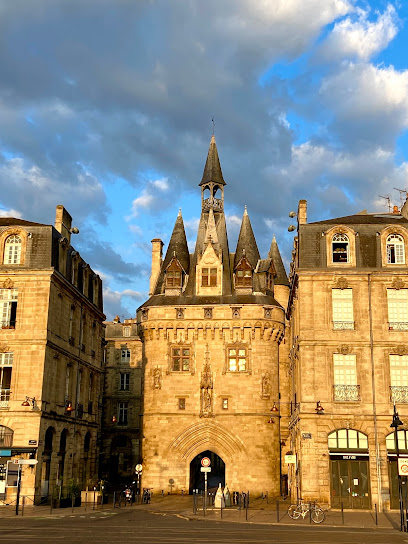
Basilique Saint-Michel
Discover the Basilique Saint-Michel in Bordeaux: a Flamboyant Gothic masterpiece and UNESCO World Heritage site with the tallest spire in southern France.
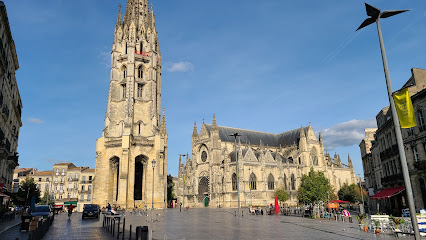
Place du Parlement
Discover Place du Parlement in Bordeaux: a historic square with stunning architecture, a beautiful fountain, and a vibrant atmosphere.
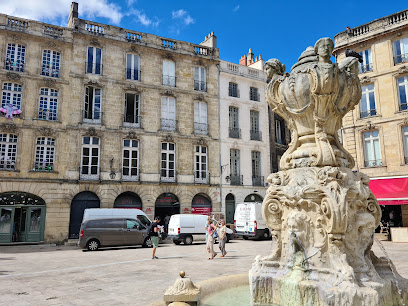
Pey Berland Tower
Ascend Bordeaux's Pey Berland Tower for panoramic views and a journey through centuries of history, architecture, and cultural significance.

Pont Jacques Chaban Delmas
Discover Bordeaux's modern marvel: the Pont Jacques Chaban-Delmas, Europe's tallest lift bridge, offering stunning views and a blend of innovation and elegance.
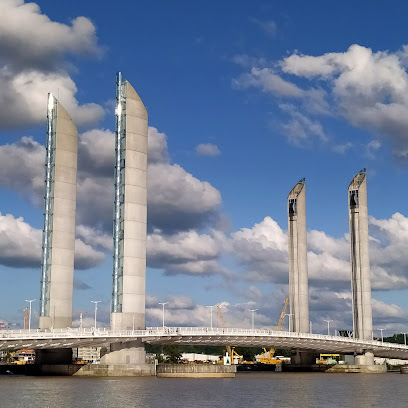
Free Walking Tours Bordeaux (english/español)
Discover Bordeaux's iconic landmarks & hidden gems with engaging free walking tours. Explore history, culture, & local tips on a budget-friendly adventure.
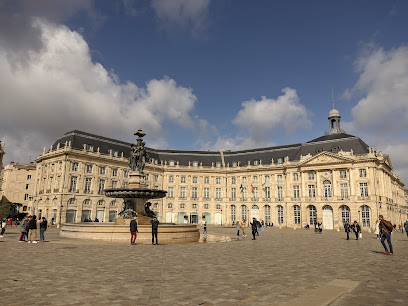
Unmissable attractions to see
Cité du Vin
Embark on a sensory journey through the world of wine at Bordeaux's Cité du Vin: explore global wine cultures, interactive exhibits, and panoramic tastings in an architectural masterpiece.
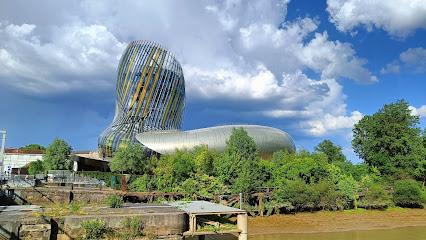
Bassins des Lumières
Experience art in a new light at Bassins des Lumières, the world's largest digital art center in a former WWII submarine base, where masterpieces come alive through immersive projections.
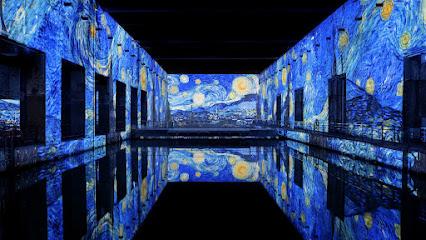
Miroir d'eau
Experience the magic of Bordeaux at the Miroir d'eau, the world's largest reflecting pool, offering breathtaking reflections of the Place de la Bourse and a playful interaction with water and fog.
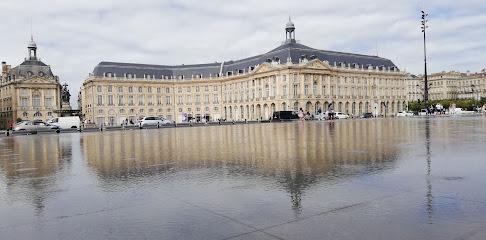
Jardin Public
Discover Bordeaux's enchanting Jardin Public: a historic green oasis offering tranquility, cultural attractions, and family fun in the heart of the city since 1746.
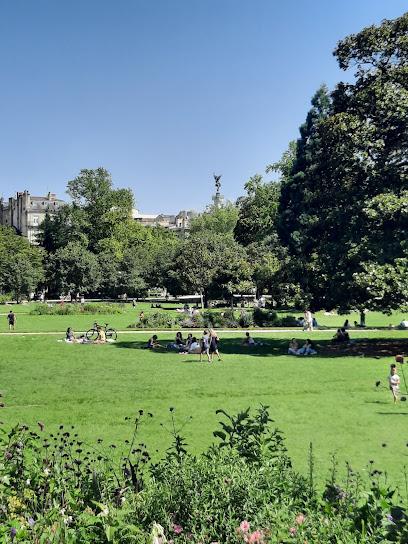
Saint-André Cathedral
Discover Bordeaux's Cathédrale Saint-André: A historic Gothic masterpiece, witness to royal weddings and a symbol of the city's enduring spirit, offering stunning architecture and panoramic views.
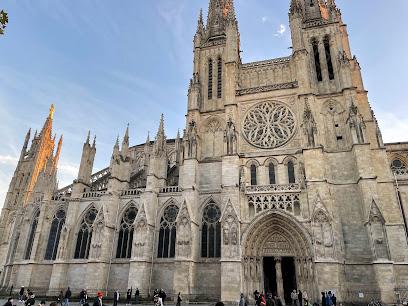
Opéra National de Bordeaux - Grand-Théâtre
Experience the grandeur of 18th-century neoclassical architecture and world-class performing arts at Bordeaux's iconic Opéra National, a cultural gem in the heart of the city.
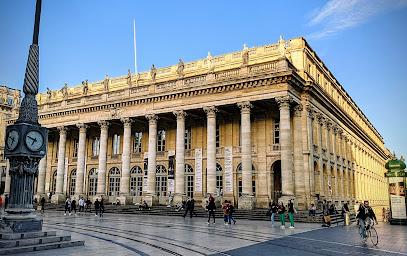
Darwin Eco-système
Discover Darwin Eco-système in Bordeaux: A vibrant urban space where sustainability, street art, and community converge, offering a unique and inspiring experience for every traveler.
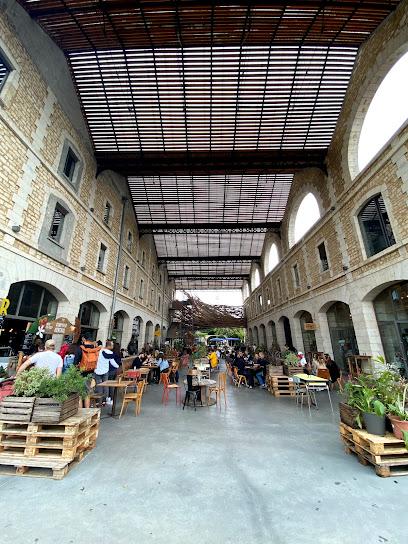
Base sous-marine
Explore a colossal WWII submarine base transformed into a mesmerizing art space, featuring immersive digital exhibitions and contemporary art in Bordeaux's Bassins à Flot district.
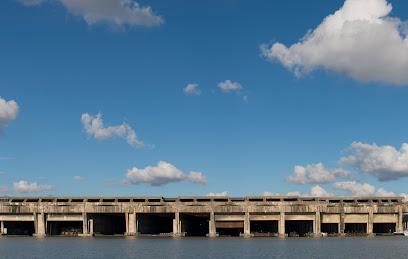
Parc Bordelais
Discover Bordeaux's largest green space, a 19th-century Parisian-inspired park offering a tranquil escape with diverse landscapes, family activities, and historical charm for an unforgettable experience.
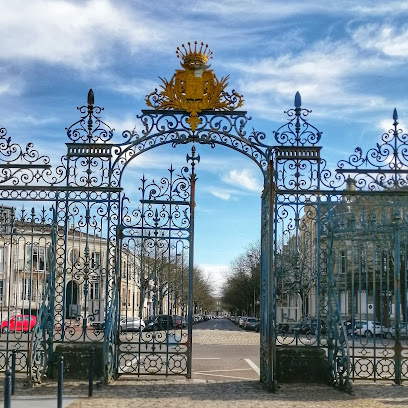
Grosse Cloche
Discover the Grosse Cloche in Bordeaux, a historic bell tower and former city gate, offering panoramic views and a glimpse into the city's medieval past and enduring spirit.
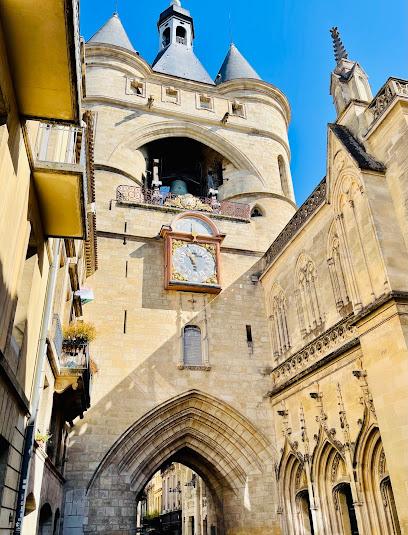
Porte Cailhau
Step back in time at Bordeaux's Porte Cailhau, a magnificent medieval gate offering panoramic city views and a glimpse into the city's rich history and architectural evolution.
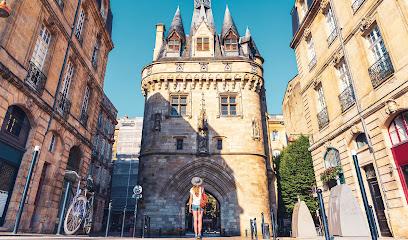
Basilique Saint-Michel
Discover the soaring heights and intriguing history of Bordeaux's Basilique Saint-Michel, a UNESCO World Heritage site with stunning Gothic architecture and panoramic city views.
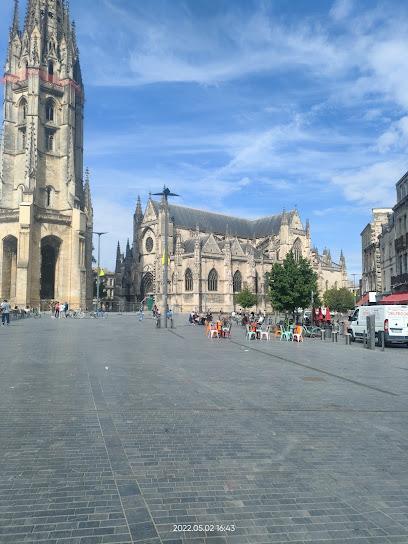
Monolithic Church of Saint-Emilion
Discover the breathtaking Monolithic Church of Saint-Émilion, a subterranean marvel carved from limestone, offering a unique glimpse into medieval history and architectural ingenuity in the heart of wine country.
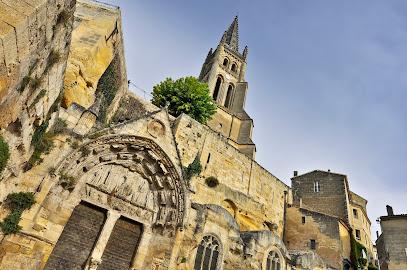
Musée d'Aquitaine
Explore over 400,000 years of history at Musée d'Aquitaine, from prehistoric artifacts to Bordeaux's role in global trade, in one of France's largest regional history museums.
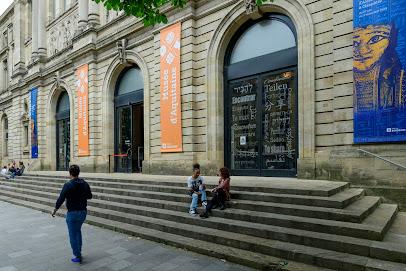
Place du Parlement
Discover Place du Parlement in Bordeaux: a historic square with stunning 18th-century architecture, a beautiful fountain, and a vibrant cafe culture in the heart of the city.
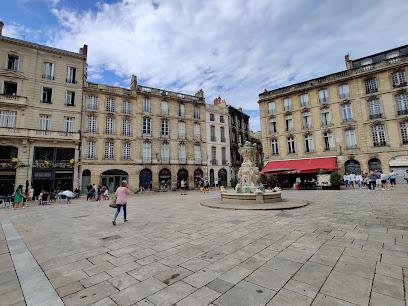
Essential places to dine
Brasserie Bordelaise
Experience authentic French cuisine at Brasserie Bordelaise in Bordeaux - where tradition meets taste in an inviting atmosphere.
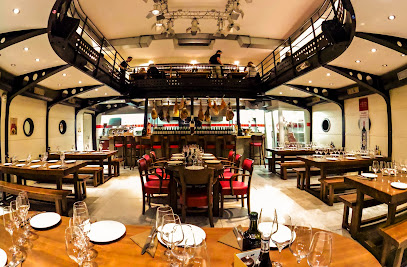
L'Autre Petit Bois
Experience authentic French cuisine at L'Autre Petit Bois in Bordeaux – where tradition meets culinary excellence.
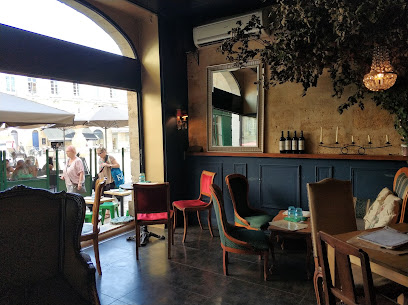
Restaurant Le Plana
Experience exquisite French cuisine at Restaurant Le Plana in Bordeaux—where tradition meets modernity in every dish.
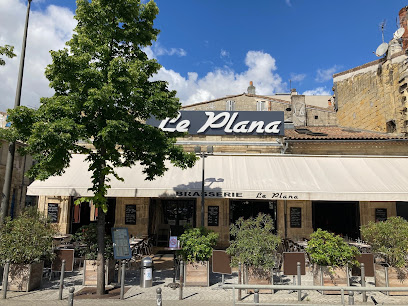
Les Fils à Maman Bordeaux
Discover the vibrant flavors of France at Les Fils à Maman Bordeaux - where tradition meets eclectic dining in a cozy atmosphere.
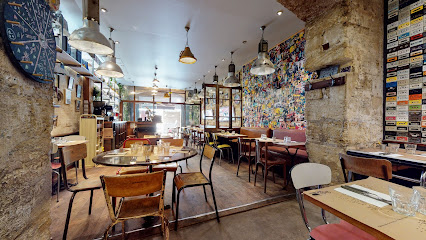
Les Drôles
Discover exquisite French cuisine at Les Drôles in Bordeaux - where every meal is a celebration of flavor and tradition.
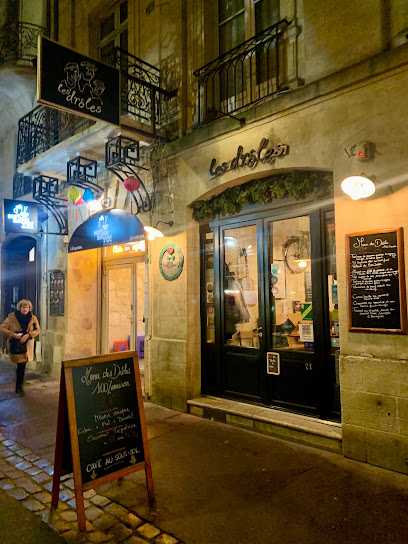
Le 7 Restaurant
Experience exquisite French cuisine at Le 7 Restaurant in Bordeaux with stunning views and exceptional service.
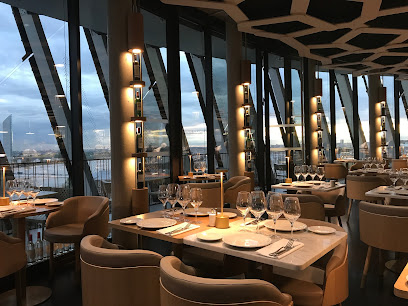
Modjo
Discover Modjo in Bordeaux: A fine dining experience blending modern French cuisine with family-friendly warmth and health-conscious options.
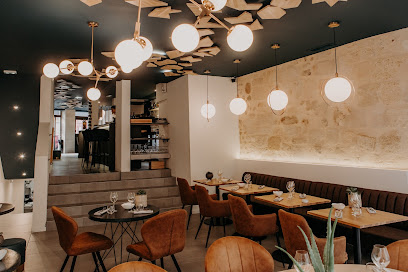
Restaurant les voûtes
Discover the exquisite flavors of traditional French cuisine at Restaurant les Voûtes in Bordeaux - an unforgettable dining experience awaits.
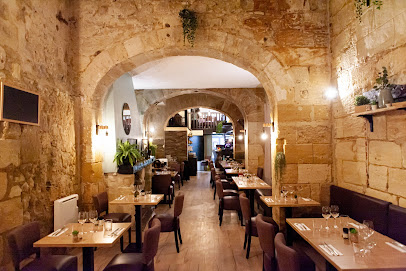
Le Bordeaux
Experience luxurious French dining at Le Bordeaux in the heart of Bordeaux with exquisite flavors and elegant ambiance.
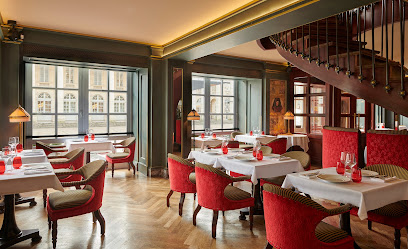
La Tupina
Experience authentic French cuisine at La Tupina in Bordeaux, where rustic charm meets exquisite flavors in every dish.
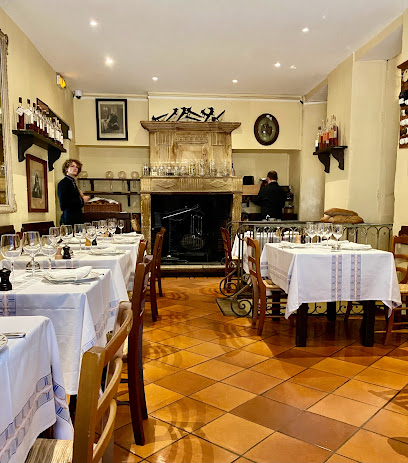
Petit Mignon
Savor the unique fusion of gourmet hamburgers and French cuisine at Petit Mignon in Bordeaux.
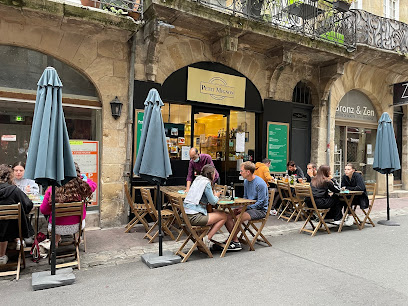
L'Oiseau Bleu
Discover L'Oiseau Bleu in Bordeaux: where haute French cuisine meets exquisite ambiance for an unforgettable fine dining experience.
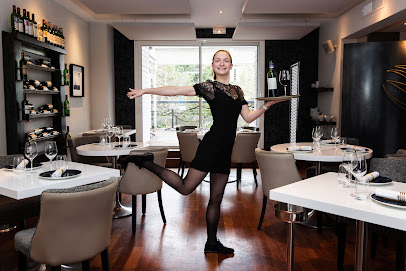
Restaurant Son'
Experience exquisite haute French cuisine at Restaurant Son', where tradition meets modernity in the heart of Bordeaux.
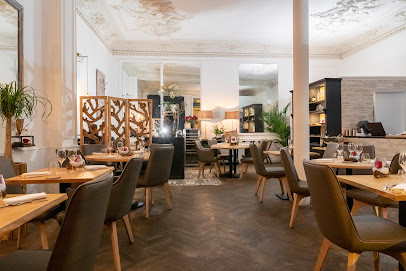
Tante Charlotte
Experience exquisite French cuisine at Tante Charlotte in Bordeaux – where tradition meets taste in every delightful dish.
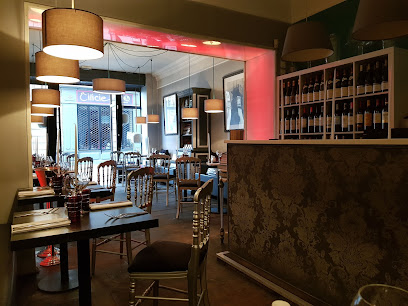
Arcada
Discover culinary artistry at Arcada, where fine dining meets the exquisite flavors of Bordeaux in a sophisticated setting.
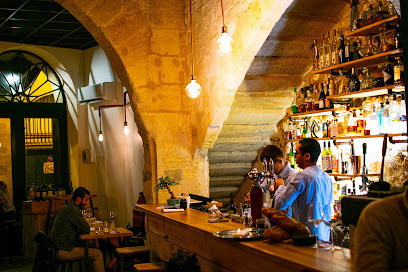
Markets, malls and hidden boutiques
Bordeaux Lac
Discover Bordeaux Lac, a vibrant shopping mall in Bordeaux offering diverse stores, delicious dining options, and fun-filled recreational activities.
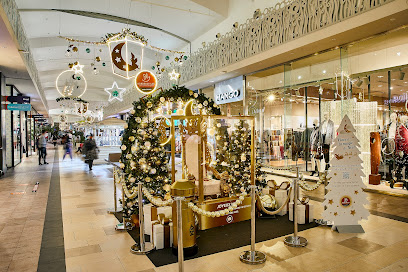
Mériadeck
Discover Mériadeck, Bordeaux's vibrant shopping mall, offering a unique blend of retail, dining, and cultural experiences in a stunning modern setting.
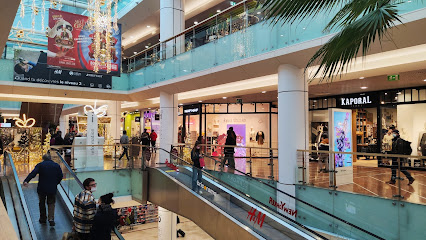
Promenade Sainte Catherine
Explore the lively Promenade Sainte Catherine in Bordeaux, a premier shopping mall filled with diverse stores, delightful dining, and vibrant local culture.
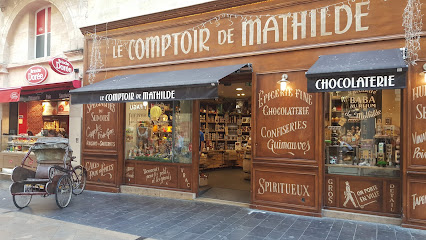
Bord'eau Village
Discover the charming Bord'eau Village in Bordeaux, where shopping, dining, and history come together in a vibrant waterfront setting.
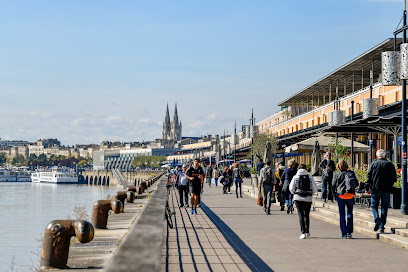
Galeries Lafayette Bordeaux
Explore Galeries Lafayette Bordeaux, where luxury shopping meets exquisite French style in the heart of a vibrant city.
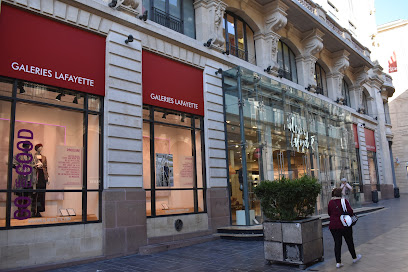
La Galerie des Grands Hommes
Discover the elegance of shopping and dining at La Galerie des Grands Hommes in Bordeaux, where culture meets commerce in a breathtaking setting.
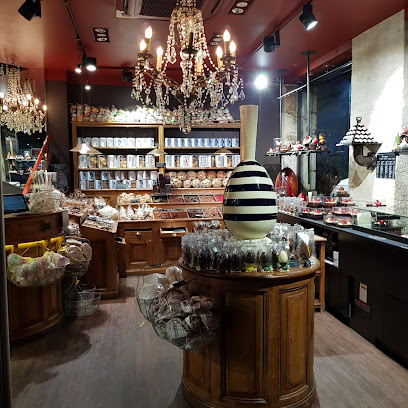
Citadium
Citadium in Bordeaux: Shop the latest trends with a unique selection of clothing and accessories for every style.
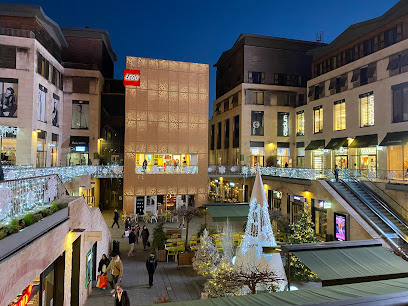
UNIQLO BORDEAUX
Explore UNIQLO Bordeaux for stylish, quality clothing for the whole family in a vibrant shopping atmosphere.
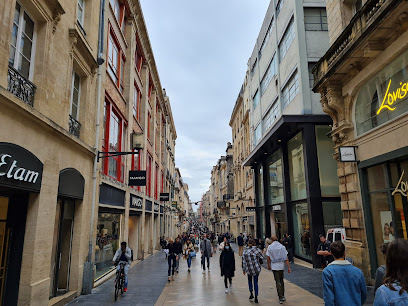
Nature and Discoveries
Discover unique nature-themed gifts and artisanal crafts in Bordeaux's beloved Nature and Discoveries shop, a treasure for eco-conscious travelers.
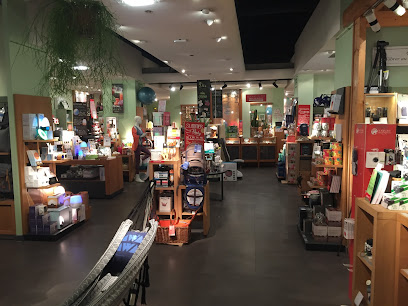
Saint-Christoly
Explore Saint-Christoly Shopping Mall in Bordeaux - a vibrant hub of fashion, food, and local culture, perfect for every traveler.

Warehouse Saint Germain
Explore the charm of Warehouse Saint Germain in Bordeaux, your go-to destination for vintage treasures and unique home goods.
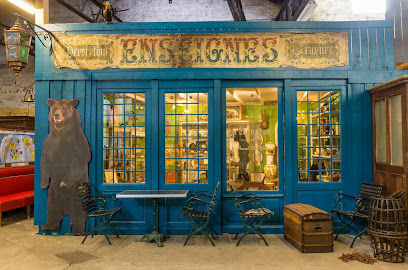
Louis Vuitton
Discover the allure of luxury shopping at Louis Vuitton Bordeaux, where elegance meets craftsmanship in a stunning boutique experience.
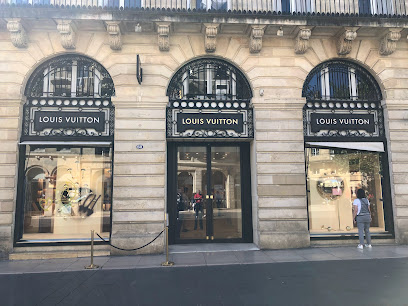
Galerie Bordelaise
Discover the vibrant shopping experience at Galerie Bordelaise in Bordeaux, where culture and retail come together in a charming setting.
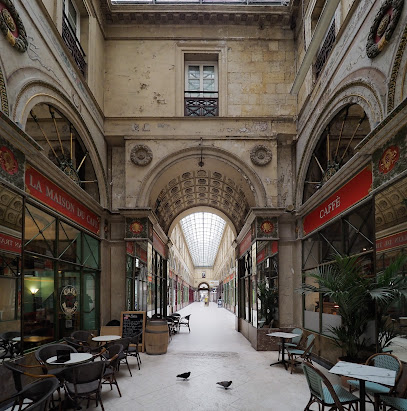
HERMÈS Bordeaux Store
Discover the elegance of HERMÈS Bordeaux, where luxury leather goods and timeless craftsmanship meet in the heart of this historic city.
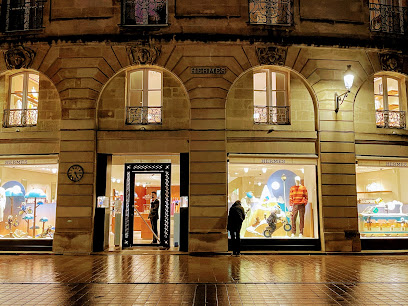
The Tea Shop
Discover a world of exquisite teas at The Tea Shop, a tranquil retreat in the heart of Bordeaux, perfect for every tea lover.
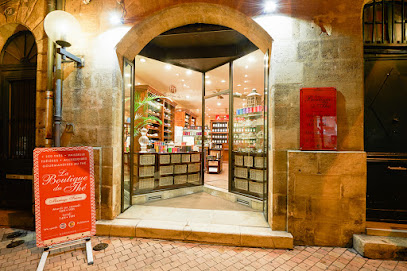
Essential bars & hidden hideouts
The Grizzly Pub
Experience the vibrant nightlife of Bordeaux at The Grizzly Pub, a popular destination for craft beers, live music, and friendly gatherings.
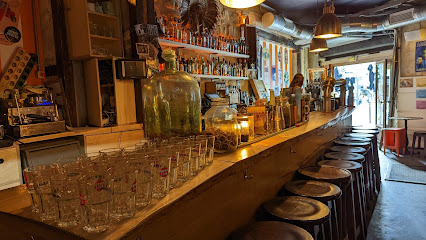
Les Berthom
Discover the vibrant nightlife at Les Berthom, a bar in Bordeaux offering exquisite drinks and a lively social atmosphere.
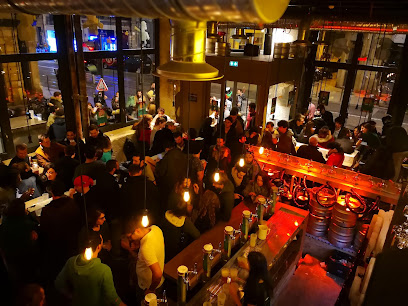
La Comtesse
Discover La Comtesse: A charming Bordeaux bar offering a delightful drink menu and vibrant atmosphere, perfect for unwinding after exploring the city.
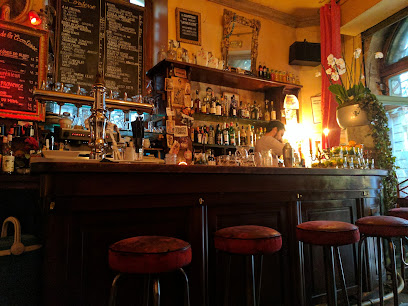
L'apollo bar
Discover the vibrant atmosphere of L'apollo Bar in Bordeaux, offering a diverse drink menu and a lively cultural experience.
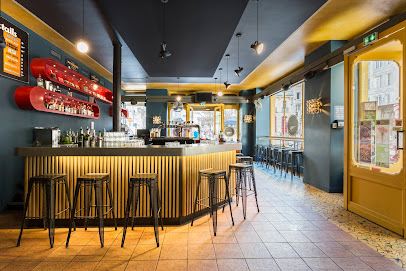
VINTAGE BAR - Rhumerie & Pub
Immerse yourself in the vibrant ambiance of Vintage Bar, where exceptional rum selections meet a lively atmosphere in the heart of Bordeaux.
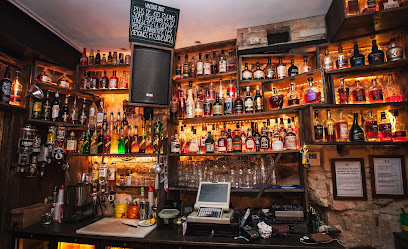
Barracuda Bordeaux
Experience the vibrant nightlife at Barracuda Bordeaux, where innovative cocktails and a lively atmosphere await every visitor.
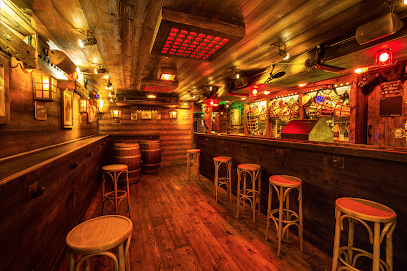
Madame Pang
Discover the vibrant fusion of Mandarin cuisine and innovative cocktails at Madame Pang, a top cocktail bar and restaurant in Bordeaux.
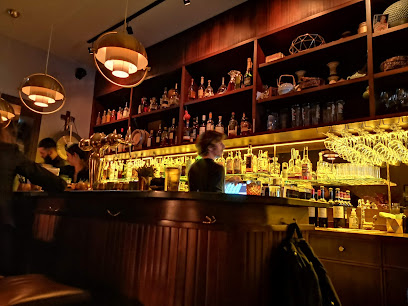
The Cock And Bull
Experience the vibrant atmosphere and delightful beverages at The Cock And Bull, a charming pub in the heart of Bordeaux, perfect for socializing and relaxation.
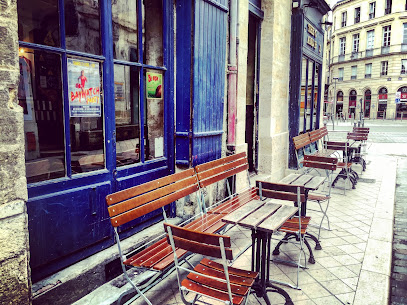
ROCKWOOD
Experience the vibrant nightlife of Bordeaux at Rockwood, where local beers and tapas meet a lively social scene.
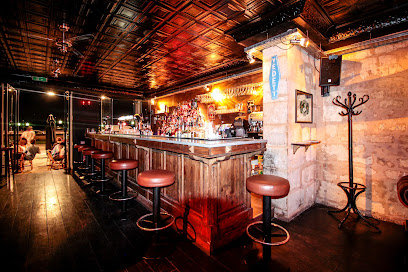
The Dog and Duck
Experience the vibrant atmosphere and diverse drink selection at The Dog and Duck, a must-visit bar in the heart of Bordeaux.
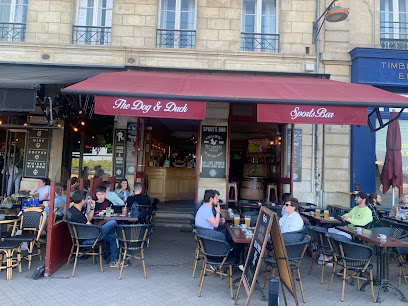
Le fiacre
Experience the vibrant nightlife of Bordeaux at Le Fiacre, a cocktail bar known for its live music and expertly crafted drinks in a lively atmosphere.
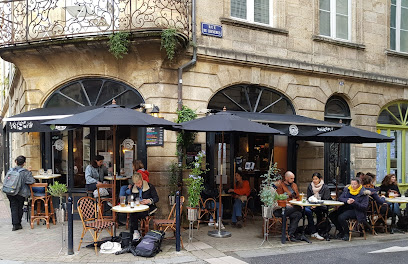
The Black Flag
Experience the vibrant nightlife of Bordeaux at The Black Flag, where expertly crafted cocktails meet a chic ambiance for unforgettable evenings.
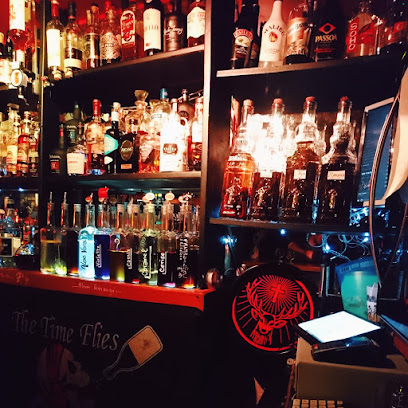
La Vie Moderne
Discover the lively ambiance and diverse drink offerings at La Vie Moderne, a must-visit bar in the heart of Bordeaux.
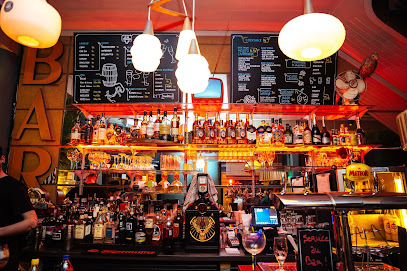
L'ENGRENAGE - Bar & Chill
Experience the vibrant nightlife of Bordeaux at L'ENGRENAGE, a cozy bar offering a delightful selection of drinks and a welcoming atmosphere.
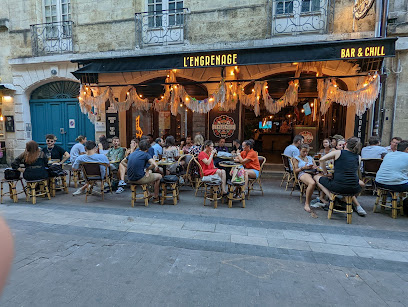
Local Phrases
-
- HelloBonjour
[bohn-zhoor] - GoodbyeAu revoir
[oh ruh-vwahr] - YesOui
[wee] - NoNon
[nohn] - Please/You're welcomeS'il vous plaît/De rien
[seel voo pleh/duh ryen] - Thank youMerci
[mehr-see] - Excuse me/SorryExcusez-moi/Désolé
[ex-kew-zay mwah/deh-zoh-lay] - How are you?Comment ça va?
[koh-mohn sa vah] - Fine. And you?Bien. Et vous?
[byeh. ay voo] - Do you speak English?Parlez-vous anglais?
[par-lay voo ahn-glay] - I don't understandJe ne comprends pas
[zhuh nuh kohm-prahn pah]
- HelloBonjour
-
- I'd like to see the menu, pleaseJe voudrais voir la carte, s'il vous plaît
[zhuh voo-dray vwahr lah kart, seel voo pleh] - I don't eat meatJe ne mange pas de viande
[zhuh nuh mahnj pah duh vyand] - Cheers!Santé!
[sahn-tay] - I would like to pay, pleaseJe voudrais payer, s'il vous plaît
[zhuh voo-dray pay-ay, seel voo pleh]
- I'd like to see the menu, pleaseJe voudrais voir la carte, s'il vous plaît
-
- Help!À l'aide!
[ah layd] - Go away!Allez-vous en!
[ah-lay vooz ahn] - Call the Police!Appelez la police!
[ah-puh-lay lah poh-lees] - Call a doctor!Appelez un médecin!
[ah-puh-lay uh may-dsahn] - I'm lostJe suis perdu
[zhuh swee pehr-doo] - I'm illJe suis malade
[zhuh swee mah-lahd]
- Help!À l'aide!
-
- I'd like to buy...Je voudrais acheter...
[zhuh voo-dray zah-shtay...] - I'm just lookingJe regarde juste
[zhuh ruh-gahrd zhuhst] - How much is it?Combien ça coûte?
[kohm-byen sah koot] - That's too expensiveC'est trop cher
[say troh shair] - Can you lower the price?Pouvez-vous baisser le prix?
[poo-vehy voo bay-say luh pree]
- I'd like to buy...Je voudrais acheter...
-
- What time is it?Quelle heure est-il?
[kell uhr eh-teel] - It's one o'clockIl est une heure
[eel eh tuhn uhr] - Half past (10)Dix heures et demie
[dees uhr ay duh-mee] - MorningMatin
[mah-tahn] - AfternoonAprès-midi
[ah-pray mee-dee] - EveningSoir
[swahr] - YesterdayHier
[yehr] - TodayAujourd'hui
[oh-zhoor-dwee] - TomorrowDemain
[duh-mahn] - 1Un
[uhn] - 2Deux
[duh] - 3Trois
[twah] - 4Quatre
[katr] - 5Cinq
[sank] - 6Six
[sees] - 7Sept
[set] - 8Huit
[weet] - 9Neuf
[nurf] - 10Dix
[dees]
- What time is it?Quelle heure est-il?
-
- Where's a/the...?Où est...?
[oo eh...] - What's the address?Quelle est l'adresse?
[kell eh lahd-rehs] - Can you show me (on the map)?Pouvez-vous me montrer (sur la carte)?
[poo-vehy voo muh mohn-tray (sir lah kart)] - When's the next (bus)?Quand est le prochain (bus)?
[kahn eh luh proh-shahn (bus)] - A ticket (to ....)Un billet (pour ....)
[uhn bee-yay (poor)]
- Where's a/the...?Où est...?
History of Bordeaux
-
The history of Bordeaux dates back to around 300 BC when it was known as Burdigala, a name given by the Celts. The strategic location on the Garonne River made it an important center for trade and commerce.
-
In 60 BC, Bordeaux became part of the Roman Empire, flourishing as a significant trading hub. The Romans built impressive structures, including an amphitheater, temples, and baths. Vestiges of this era, such as the Palais Gallien, still stand today.
-
During the Middle Ages, Bordeaux thrived under the rule of the Dukes of Aquitaine. The marriage of Eleanor of Aquitaine to Henry II of England in 1152 brought Bordeaux under English control, enhancing its wine trade, which became a key economic driver.
-
Bordeaux played a crucial role in the Hundred Years' War between France and England. The city remained loyal to the English crown until 1453, when it was finally reclaimed by the French after the Battle of Castillon, marking the end of the war.
-
The 18th century marked a golden era for Bordeaux. The city underwent significant architectural transformation, with grand neoclassical buildings and wide boulevards. This period saw the construction of landmarks like the Place de la Bourse and the Grand Théâtre, reflecting the flourishing trade and wealth.
-
Bordeaux's reputation as a wine capital was cemented in the 18th and 19th centuries. The development of the wine classification system in 1855 further established its global influence. The region's vineyards, including prestigious names like Château Margaux and Château Latour, became synonymous with quality.
-
During World War II, Bordeaux was occupied by German forces. The city’s strategic port was used for submarine operations. The occupation left a lasting impact, but Bordeaux emerged from the war and began a period of reconstruction and modernization.
-
In recent decades, Bordeaux has undergone a remarkable renaissance, transforming into a vibrant, modern city while preserving its rich heritage. Urban regeneration projects, such as the restoration of the riverfront and the development of the Cité du Vin wine museum, have rejuvenated the city, attracting tourists worldwide.
Bordeaux Essentials
-
Bordeaux is well-connected by air, rail, and road. The Bordeaux-Merignac Airport (BOD) serves international and domestic flights, and is located approximately 12 kilometers from the city center. From the airport, you can take a taxi, shuttle bus, or rent a car to reach the city. Bordeaux is also a major hub on the French rail network, with TGV high-speed trains connecting it to Paris in just over two hours. Additionally, buses and car rentals are available for those who prefer to travel by road.
-
Bordeaux boasts an efficient public transportation system operated by TBM, which includes trams, buses, and river shuttles. The tram network is particularly extensive and connects key areas of the city. Buses cover routes that trams do not. For a more scenic travel option, the BatCub river shuttles offer a unique way to navigate the city along the Garonne River. Taxis and ride-sharing services like Uber are also available. For those who prefer cycling, Bordeaux has an extensive bike-sharing program called VCub.
-
The official currency in Bordeaux is the Euro (EUR). Credit and debit cards are widely accepted in most establishments, including hotels, restaurants, and shops. ATMs are plentiful throughout the city, allowing for easy cash withdrawals. However, it is advisable to carry some cash for smaller purchases or in case you visit places that do not accept cards.
-
Bordeaux is generally a safe city for tourists. However, as with any urban area, it is wise to take standard precautions. Avoid poorly lit areas and neighborhoods like Saint-Michel and Victoire at night, as these have higher crime rates. Always keep an eye on your belongings, especially in crowded places such as the tram and train stations. Pickpocketing can be an issue, so remain vigilant.
-
In case of emergency, dial 112 for immediate assistance. The city has well-equipped medical facilities, including the Pellegrin University Hospital. Pharmacies are available throughout Bordeaux, many of which have 24-hour service. It is advisable to carry travel insurance that covers medical emergencies. For police assistance, you can visit the nearest police station or call 17.
-
Fashion: Do dress stylishly but comfortably. Avoid overly casual attire, especially when dining out. Religion: Do respect local customs, particularly in religious sites. Avoid loud behavior and wear modest clothing. Public Transport: Do validate your ticket before boarding trams and buses. Don’t eat or drink on public transport. Greetings: Do greet people with a friendly 'Bonjour' followed by a handshake. Avoid using first names unless invited to do so. Eating & Drinking: Do try local wines and delicacies. Don’t rush through meals; dining is a social activity. Tipping is appreciated but not obligatory, usually around 5-10% if you are satisfied with the service.
-
To experience Bordeaux like a local, consider visiting the Marché des Capucins, a bustling market offering fresh produce and local specialties. Take a leisurely stroll along the Garonne River or rent a bike and explore the city's extensive cycling paths. Enjoy a glass of wine at one of the many wine bars in the Chartrons district. For a unique experience, attend a wine tasting workshop at the Cité du Vin. Engage with locals, as they are often friendly and willing to share their love for the city.
Trending Landmark in Bordeaux
-
La Cité du Vin
-
Place de la Bourse
-
Miroir d'eau
-
Cathédrale Saint-André de Bordeaux
-
National Opera of Bordeaux
-
Monument aux Girondins
-
Base sous-marine
-
Porte de Bourgogne
-
Grosse Cloche
-
Porte Cailhau
-
Basilique Saint-Michel
-
Place du Parlement
-
Pey Berland Tower
-
Pont Jacques Chaban Delmas
-
Free Walking Tours Bordeaux (english/español)
Nearby Cities to Bordeaux
-
Things To Do in La Rochelle
-
Things To Do in Limoges
-
Things To Do in Lourdes
-
Things To Do in San Sebastián
-
Things To Do in Toulouse
-
Things To Do in Pamplona
-
Things To Do in Bilbao
-
Things To Do in Nantes
-
Things To Do in Angers
-
Things To Do in El Serrat
-
Things To Do in Tours
-
Things To Do in Santander
-
Things To Do in Huesca
-
Things To Do in Arinsal
-
Things To Do in Ordino



















